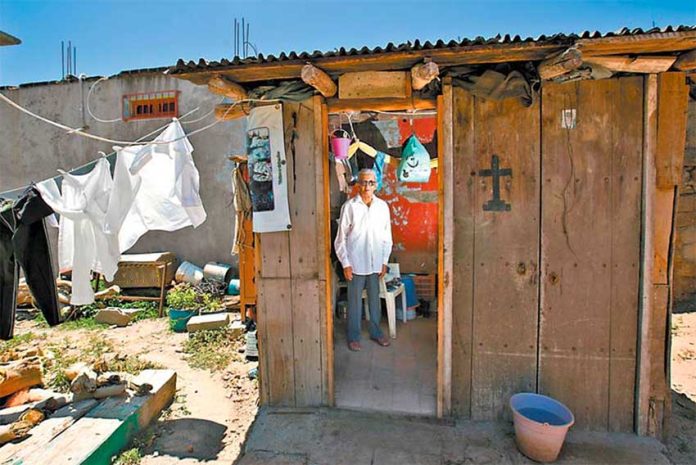Two hundred residents of Juchitán, Oaxaca, who lost their homes in the first of two major September 2017 earthquakes have reported being defrauded of financial aid money by unscrupulous construction companies, local officials say.
In the aftermath of the September 7 and September 19 quakes that devastated parts of central and southern Mexico, the federal government granted 120,000 pesos (US $6,200 at today’s exchange rate) to people whose homes sustained total damage.
Victims received stored-value bank cards loaded with 90,000 pesos to pay for labor and 30,000 pesos in cash to buy construction materials.
In Juchitán, the commercial hub of the Isthmus of Tehuantepec region where houses fell like dominoes in the powerful 8.2-magnitude quake, 200 people who received the government aid handed their cards and money over to construction companies who committed to build them new homes but failed to deliver on their promises.
In other words, the “builders” took the money and ran, without completing any or all of the work they promised.
Meanwhile, their victims are still without adequate housing just shy of the first anniversary of the tragic disaster.
Juchitán Mayor Gloria Sánchez told the newspaper Milenio that municipal authorities have received 200 complaints from duped residents.
“What happened is that a lot of people who were sleeping in the street were driven to despair and in these companies they saw a chance to have a home quickly. They never imagined that these men would disappear with their money. What’s certain is that it’s a very serious problem because if the 200 complaints are confirmed, we’re talking about fraud of around 24 million pesos [US $1.2 million],” she said.
One of the earthquake — and fraud — victims is Juan Castillo, an 85-year-old man whose home collapsed when the quake struck just before midnight on September 7.
Rendered homeless and desperate, Castillo gave all the aid money he received to Federico Irán Cabrera, director of the construction company Hiram Habif, who committed to building him a single-story, two-room home with a bathroom and all finishings included. But all he got was a shoddily-built, half-finished home with a leaky roof.
“He offered us everything, a decent house and that’s why I gave him my card with the 90,000 pesos and 30,000 more in cash but this bad person only took the card and the money and left, he disappeared. I’ve gone to look for him and I call the telephone number he gave us but nothing. It seems that the earth swallowed him up,” Castillo said.
“I worked in construction for a long time, I was a builder but an injury left me all twisted out of shape, that’s why I left that job. Before this tragedy, I said: ‘what am I pushing myself for if I already have a home?’ I never imagined that at the age of 85 I would have to start from zero, or even worse, that I would be chasing after an opportunist,” he added.
Castillo said that he fears that the half-completed home could also collapse in another strong earthquake and is living instead in a small, makeshift wooden home his neighbor helped him build.
“. . . While there’s no solution and they don’t catch up with that man, I’ll stay here,” he said.
According to data from the Secretariat of Agrarian Development and Urban Planning (Sedatu) — the federal department that deposited the aid funds —at least 30 complaints have been filed against Hiram Habif and Grupo Delta, another construction company, but despite being ordered by state authorities to complete the work they committed to, they have failed to do so.
A municipal government official in charge of fraud complaints told Milenio that many residents have also tried to file complaints with a municipal judge but they haven’t been accepted based on the argument that what they are victims of cannot be classified as a criminal offense.
“So where can people go to complain? Who can protect them? Nobody, the authorities themselves say that it’s not a serious crime. So what can we do?” Manuel Vázquez asked.
Complicating the situation, he explained, is that the contracts many quake victims signed with construction companies were not certified by a notary public, meaning they can’t legally prove that they handed over their aid money.
Vázquez said it was reprehensible that companies had defrauded people who lost everything in the earthquake, adding that they should be firmly punished for their actions.
“The people who do this are perverse, taking advantage of the tragedy of these poor people and making a mockery of their needs. It’s astonishing that in the middle of a tragedy, there are people who want to do more harm.”
Source: Milenio (sp)
